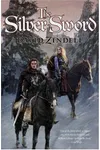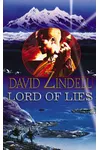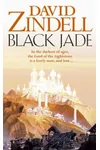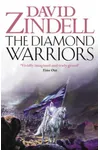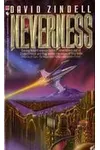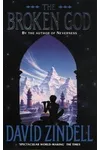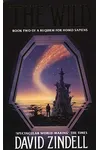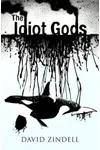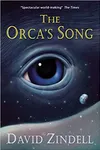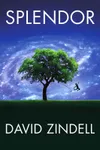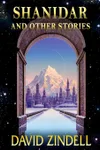Picture an American storyteller who wove mathematics, mysticism, and cosmic adventure into unforgettable science fiction—meet David Zindell! Born in Toledo, Ohio, this visionary author burst onto the scene with his debut novel Neverness, a sprawling epic that blends high-concept ideas with poetic prose. Zindell’s work invites readers to explore the universe’s deepest mysteries, making him a hidden gem in sci-fi.
With a knack for tackling big questions about consciousness, evolution, and humanity’s place in the cosmos, Zindell’s stories are as thought-provoking as they are thrilling. Let’s dive into the life and legacy of this remarkable writer whose imagination knows no bounds.
The Making of David Zindell
David Zindell was born on November 28, 1952, in Toledo, Ohio, but his journey took him far beyond his Midwest roots. A self-described math geek, he graduated from the University of Colorado in 1984 with a degree in mathematics, minoring in anthropology. His diverse interests in philosophy, linguistics, and physics shaped his unique storytelling style. Initially uninterested in writing, Zindell’s love for reading sci-fi sparked a creative flame. After penning an unpublished novel, he won first prize in the 1985 Writers of the Future contest for his novelette Shanidar, launching his career.
Working as a bartender by night to fund his writing, Zindell honed his craft with relentless dedication. His big break came when editor Robert Silverberg championed his work, leading to the publication of Neverness in 1988. The novel’s success in England, where it earned a record advance for a debut sci-fi novel, cemented Zindell’s place in the genre.
David Zindell’s Unforgettable Stories
Zindell’s novels are a dazzling blend of hard science, mysticism, and epic adventure. His debut, Neverness, follows Mallory Ringess, a pilot navigating a futuristic universe while grappling with godlike entities and the secrets of human evolution. Praised for its ambition, the novel won the Crawford Award and was shortlisted for the Arthur C. Clarke Award. Its intricate world-building and philosophical depth set the stage for Zindell’s signature style.
The Requiem for Homo Sapiens trilogy—The Broken God (1993), The Wild (1995), and War in Heaven (1998)—continues the saga through Danlo wi Soli Ringess, Mallory’s son. This series explores themes of transcendence and sacrifice, earning New York Times notable book honors for its final two volumes. Zindell’s fantasy series, The Ea Cycle, shifts to a mythical quest for the Lightstone, blending Arthurian legend with cosmic stakes. His 2017 novel The Idiot Gods, told from the perspective of sapient killer whales, showcases his versatility and environmental consciousness.
Known for his poetic prose and “cogent cosmic concerns,” as critic Nick Gevers noted, Zindell weaves complex ideas into gripping narratives. His stories bridge materialism and spirituality, inviting readers to ponder life’s possibilities while losing themselves in thrilling plots.
Why David Zindell Matters
David Zindell’s impact lies in his ability to elevate science fiction beyond mere escapism. His novels challenge readers to confront profound questions about consciousness, technology, and humanity’s future, all while delivering page-turning adventures. Though not as widely known as Asimov or Clarke, Zindell’s ambitious vision earned him comparisons to these giants early in his career. His work continues to inspire fans of “big-idea” sci-fi, particularly those drawn to the intersection of science and mysticism.
Residing in Boulder, Colorado, where he works as a test coach, Zindell remains a quiet force in speculative fiction. His memoir Splendor (2015) reflects on his 1960s upbringing and quest for a transformative way of living, revealing the personal passions that fuel his stories. For readers seeking intellectual depth and cosmic wonder, Zindell’s bibliography is a treasure trove.
- Born: November 28, 1952, Toledo, Ohio
- Key Works: Neverness, The Broken God, The Lightstone, The Idiot Gods
- Awards: Crawford Award (1988), Writers of the Future (1985), Hugo Award nomination (1986)
Snag Neverness and dive into David Zindell’s mind-bending sci-fi odyssey! Whether you’re a fan of epic adventures or philosophical musings, his stories promise a journey unlike any other.

